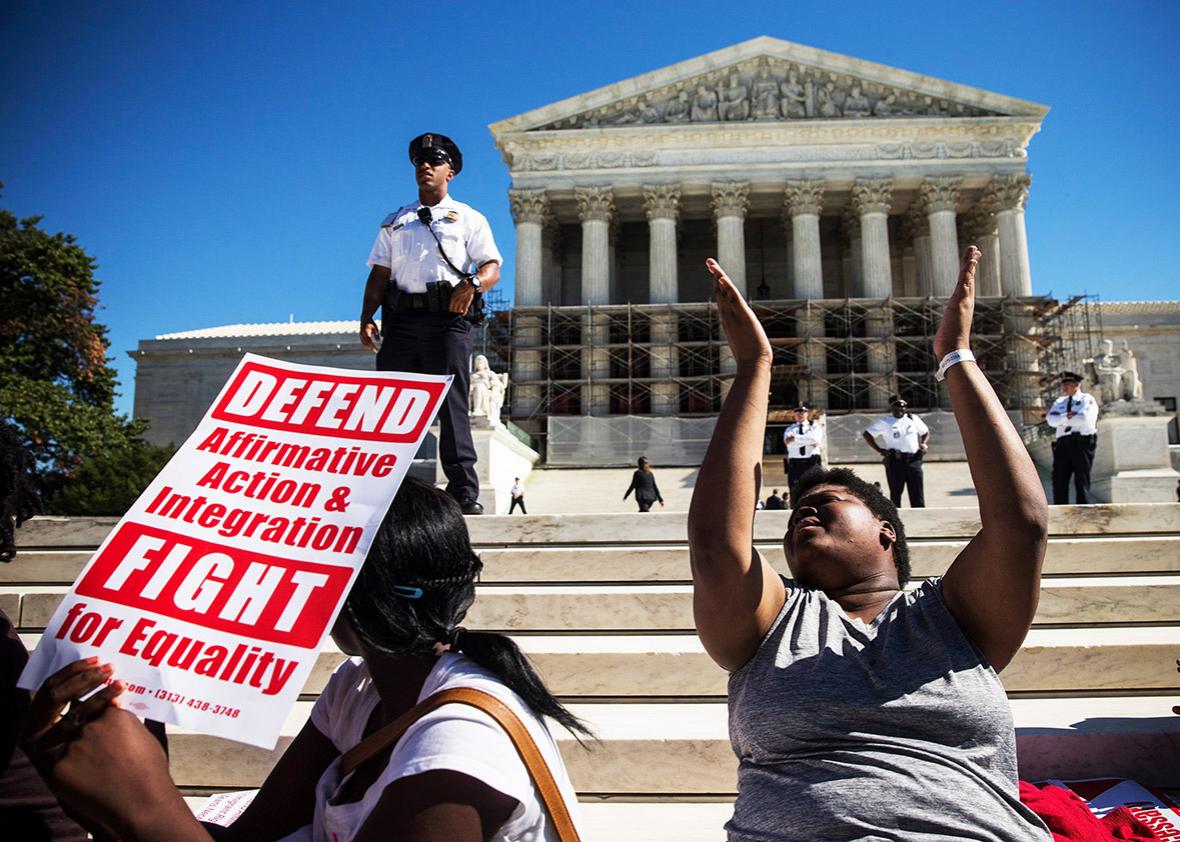As we break our breakfast (and go back to the fast, I guess), I wanted to say a few words in response to Dahlia’s elegant and incisive critique of Justice Anthony Kennedy’s opinion for the court in the Texas affirmative action case Fisher v. University of Texas at Austin (Fisher II). She found the opinion rather “confusing,” filled with “rigor[ous] … mushiness.”
Here are three takes on the Kennedy opinion in response.
Take One (the Cynic): This is just the sort of opinion one might expect from a swing justice who wants to keep his options open in future cases. We saw similar stuff from previous swing justices like Sandra Day O’Connor and Lewis Powell. On the one hand, the Fisher II opinion can, in the future, be limited to its unique facts, involving the general background of the University of Texas’ uncontested Ten Percent Plan: Affirmative action was OK on this day, in this time, at this place, and in this way, but not in other situations of Kennedy’s choosing. (If the swing justice is so inclined and the court’s makeup allows it.) On the other hand, if the future swing justice would like to swing left rather than right, the Fisher II opinion can become a base from which further doctrinal expansion and evolution might occur: Strict scrutiny is evidently not fatal to affirmative action, in fact, and nondeferential review may involve rather more judicial deference than previously thought. (The deference, like the devil, is in the details, and the details are ultimately to be assessed by the swing justice.)
Take Two (the Shrink): This is classic Kennedy. Sonorous and soaring, full of high-minded earnestness—and, of course, dignity—but at times gauzy and hard to understand in all its twists and turns. The opinion is especially awkward because Kennedy is trying to faithfully follow a landmark 2003 case in which he personally dissented, Grutter v. Bollinger. But what’s up with his pointed citation to the dissent (by Justice Ruth Bader Ginsburg) in Fisher I, a case Kennedy himself authored only a few years ago—involving the very same parties as the case at hand?
Take Three (the Generous Reader): The opinion reflects the intrinsic difficulties of affirmative action policy and affirmative action doctrine. Modern affirmative action is about history, about past governmental and societal discrimination, about black America in particular. But to openly admit all this is to risk stigma, stereotyping, and backlash. So instead we talk the happier talk of “diversity” in which no fingers of blame are pointed at past actors and actions, and fewer uncomfortable things are said or strongly implied about why these policies might be necessary.
I myself am inclined to the third take. Perhaps it’s because I have always been a fan of Justice Kennedy’s, even though we do not always agree. Candidly, I just plain like him as a human being, and I am thus inclined to think that his music, like Wagner’s, is actually better than it sounds.
And speaking of liking people, it has been such great fun to breakfast with you all; you are a truly dazzling breakfast club! Thanks again for inviting me.
